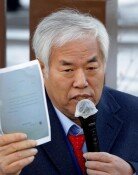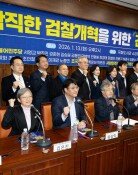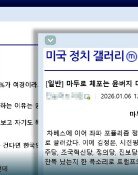Koreas Business Sector Is Suffering
Koreas Business Sector Is Suffering
Posted July. 19, 2006 03:01,
Businesses are feeling the burden of the worsening economic environment. International oil prices are at an all time high and the value of the won is getting higher. Besides the economic situation, worries about national security caused by the North Korean missile launches, strikes in the automobile industry, and flood damage are also giving businessmen headaches. These problems not only pertain to small and medium sized businesses, but also to major conglomerates.
From shutdowns to fleeing by night-
Company A, an automobile muffler manufacturer in North Gyeongsang Province, is shutting down as of July 19.
The company, which supplies Hyundai Motors with its mufflers, decided to shut down because Hyundai Motors has not been normally receiving deliveries ever since the labor union went on strike.
At the moment, the inventory of Company A has exceeded the appropriate level (three to four days worth of production) and has ten days worth. President Kim of Company A is worried because the Hyundai Motors strike shows no signs of abating.
Company A, which records 50 billion won in yearly sales, states that 500 million won of its 1.0 billion won deficit last year was due to the Hyundai Motors labor union strike.
President Kim says, I think the damage will be even bigger this year, because the strike is much bigger this year. Some 7,500 cooperating companies that supply parts to Hyundai-Kia Motors will see their deficits snowball.
President Lee of Company S, a textile company in Seongseo Industrial Complex in Dalseo-gu, Daegu fled by night after suffering from a big debt. He suffered big losses when the price of naphtha, a chemical textile, soared because of high oil prices. When the value of the won went up, the profitability of his businesses went down even further, leading his business to bankruptcy.
Representative Kim Dae-kyun of Seogang Corporation, a textile company in Daegu, says, Three or four years ago, our sales reached 70 billion won. The figure at the moment is half of that. We had to lay off 130 of 380 employees. It saddens me to think how the laid off employees will survive. He adds that it has become commonplace in the textile industry of this region to greet one another by saying, Good to see that you made it through the night.
Conglomerates are also feeling the heat-
LG Chem recorded 26.6 percent growth in sales, but saw its operating profit and ordinary income shrink by 43.9 percent and 64.3 percent in the second quarter (April to June), compared to the same period last year.
LCD, semiconductors, and mobile phone exporters that fared well these past months also experienced big declines in their operating income. Some saw red in the second quarter.
Hyundai Motors has suffered 94.9 billion won in losses (68,560 automobiles worth of losses) as of July 18, since the labor union strike started on June 26. Its sales loss is expected to reach 1 trillion won.
POSCO also received 200 billion won in damages, because of the construction workers labor union, which is illegally occupying POSCO headquarters for the sixth straight day.
According to a Korea Chamber of Commerce & Industry survey of 627 companies in the Seoul region in May, 63.2 percent of the companies will be forced to shut down, when international oil prices reach 80 dollars per barrel.
Deregulation is the cure-
Experts emphasize that major deregulation must take place in order to save investment and consumption from the various environmental risks.
Senior Research Fellow Oh Moon-suk of LG Economic Research Institute says, Companies need to prepare themselves for environmental risks and need to focus on improving their brand power in the long run. The government must relax restrictions so that companies will be more willing to invest, and nurture the service industry.
Lee Seung-cheol, head of economic research division at Federation of Korean Industries says, By internally revitalizing the market, we can fend off external dangers. The government must ease restrictions like regulations on investing in certain sectors. Companies have a lot of liquidity, and there are plenty of places to invest.



![[속보]윤석열 사형 구형…내란특검 “전두환보다 엄정히 단죄해야”](https://dimg.donga.com/c/138/175/90/1/wps/NEWS/IMAGE/2026/01/13/133151283.1.jpg)



